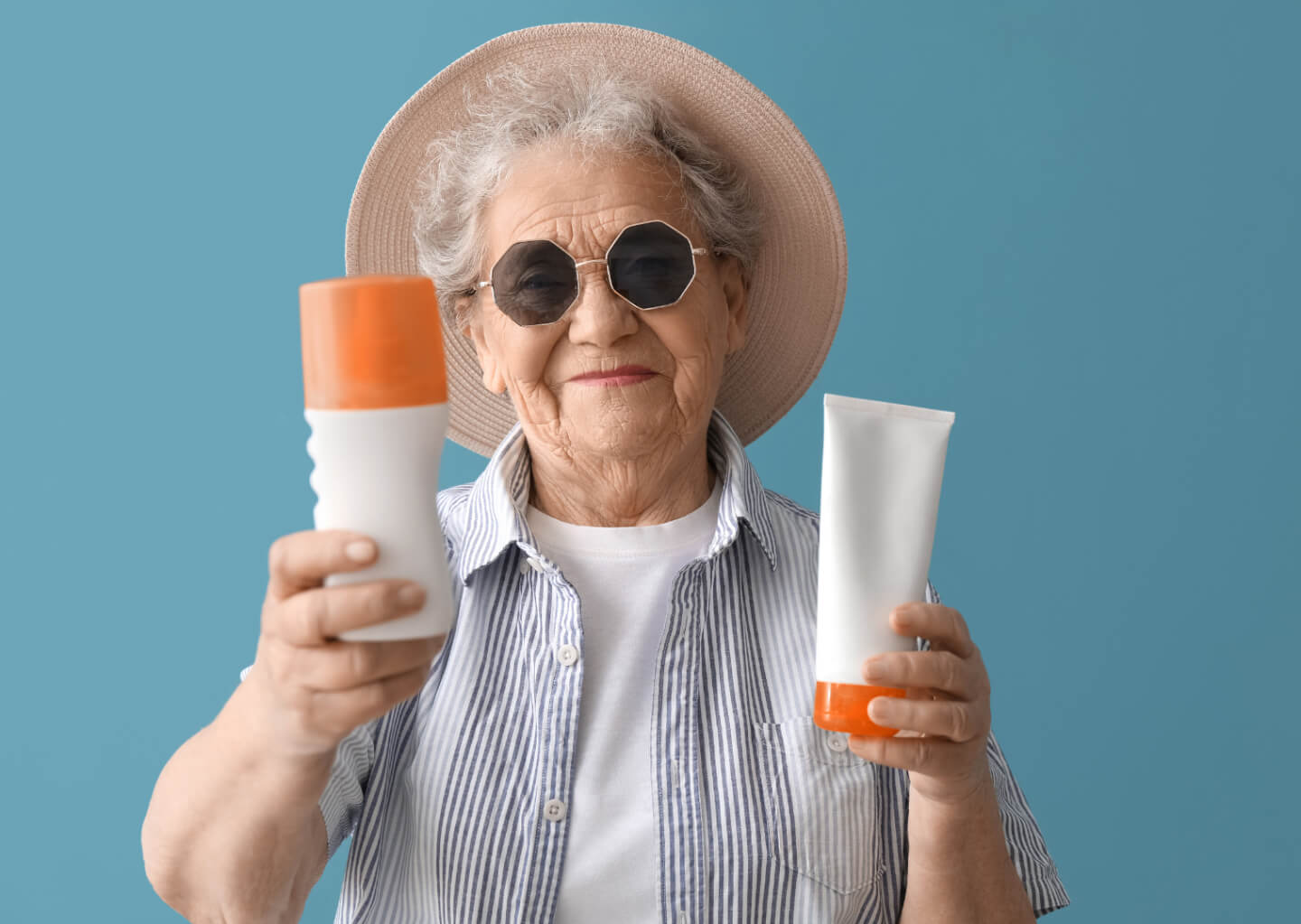
For seniors, summer presents an opportunity to enjoy the warmth, partake in social activities, and engage in light physical exercise. However, it is essential to balance these benefits with adequate sun protection to prevent the harmful effects of sun exposure. Sun damage can have severe consequences, particularly for older adults, making sun safety a crucial aspect of enjoying the summer months.
Too much sun exposure, also known as photo damage or photoaging, starts affecting the skin as early as teen years. Symptoms include:
Excessive sun exposure can also increase the risk of UV damage which can lead to skin cancer. According to the Canadian Skin Cancer Foundation, over 80,000 Canadians are diagnosed with skin cancer annually, with nearly 5,000 cases being melanoma, the most dangerous form. The risk of developing skin cancer increases with age, making sun protection even more critical for seniors.
Seek Shade & Avoid Sun During Peak Hours:
The sun’s UV rays are the strongest between 11am to 3pm. If you are in the sun during these times, stay in the shade, plan outdoor activities for earlier or later in the day, and/or wear protective clothing such as a wide-brimmed hat, a long-sleeved shirt, and sunglasses that provide protection against both UVA and UVB rays.
Certain medications are prone to making your skin more sensitive to the sun, therefore increasing the risk of sunburn and skin cancer-causing skin damage. Be mindful of antibiotics, retinoids, and NSAIDs. Be sure to read warning labels and consult with your healthcare professional for detailed information on prevention and possible alternatives during the summer months.
Dermatologists recommend that we use sunscreen every day. Opt for broad spectrum, SPF 30, water-resistant sunscreen which provides up to 97% UVB protection. Apply sunscreen 30 minutes before going outside, and reapply your sunscreen every two hours, or often if actively sweating or swimming.
Hydration is key in regulating body temperature and supporting brain function, thus preventing heat stroke and heat exhaustion. Drink plenty of cool fluids throughout the day such as water and diluted fruit juice to replenish your body of its losses during time in the sun.
Even when not in direct sunlight, UV exposure in any form, such as its reflection through windows, off of sand, and water, can cause skin damage year-round.
Skin cancer and other sun-related damage can be painless, therefore going unnoticed when unmonitored. As a rule of thumb, a senior or their caregiver should check skin monthly for any changes like a new growth, a sore that is taking particularly long to heal, or a mole. Regular eye examinations and yearly check-ins with a dermatologist/health care professional are also beneficial in identifying and treating any damage caused by the sun.
At Sorrento, we encourage a balanced lifestyle, which includes time outdoors, for its mental and physical health benefits. Enjoying the summer months safely is attainable with our team of attentive caregivers. Contact us today to see how we can help.